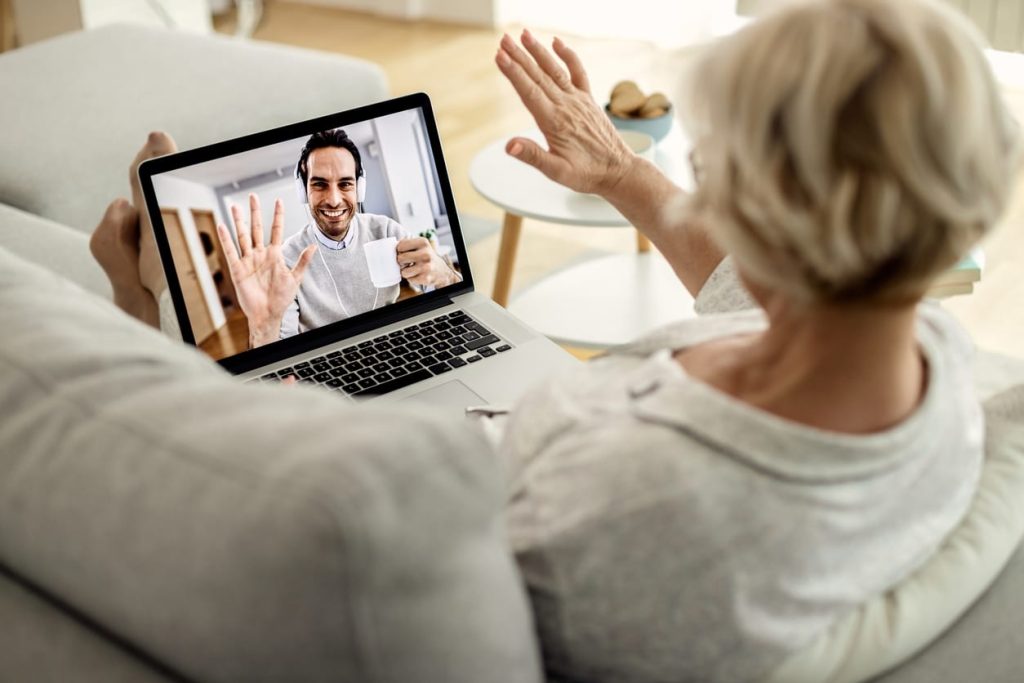Part of what we do at Fleming & Curti is protect vulnerable people. As a licensed private fiduciary, the firm serves as conservator, guardian, and agent under power of attorney for adults who can’t manage their own affairs.
Ordinarily, because we’d all be having holiday family gatherings, we might share tips for spotting a vulnerable person who needs help. But how do you assess a situation when your closest contact is by Zoom? That’s something we’ve struggled with since the pandemic began. And, as Covid cases rise, the problem is not going away. If you have a loved one who may be struggling, take extra time to pay attention. If something seems “off,” consider taking action.
How to Protect a Vulnerable Person
One thing is key: Stay in touch. Abuse is more likely to occur of the vulnerable person is isolated and alone. Call, videoconference, and, if it’s safe, visit. If you stay engaged, you’ll be able to learn what’s normal and spot changes. You also might get to know other people in the vulnerable person’s life. Caregivers, friends, and professionals may provide crucial information and help keep your loved one safe. Encourage other friends and family members to communicate, too. Being present, even by phone or videochat is crucial.
Listen and watch for:
- A change in behavior. A loved one might become depressed or withdrawn. Or get upset or agitated, or be unresponsive or act fearful. They also might demonstrate other unusual behavior.
- Physical issues. Ask about health issues. Look for bruises or other injuries that have no logical explanation. Also: weight loss and unattended medical needs.
- Neglect or self-neglect: Unusually poor hygiene, unsanitary or unsafe surroundings. Ask for a video tour of the living space.
- Financial irregularities. If you have access to bank and credit card accounts, look for unexplained withdrawals, charges, and transfers, and take note if bills are being paid regularly.
What to Do if Things Don’t Look Good
If a vulnerable person is in immediate danger, call 9-1-1 or local authorities. Under many circumstances, police will do a welfare check.
If you suspect abuse or self-neglect, report it to Adult Protective Services (“APS”). Some are required by law to report. The state-run agency may investigate what you observed and take action or provide resources. You do not have to provide actual evidence of abuse. In Arizona, 877-767-2385, or here; elsewhere, search the National Center on Elder Abuse, or call 800-677-1116.
Enlist agencies for the aging. Our local agency is Pima Council on Aging, and it has a hotline and volunteer ombudsmen. The ombudsmen listens to and investigates care home complaints and concerns. Call 520-790-7262 or e-mail [email protected] or [email protected].
If the vulnerable person lives in a facility, consider filing a complaint with the Arizona Department of Health Services. It licenses, inspects, and monitors facilities. Arizona Department of Health Services, 602-364-2536.
In some cases, government agencies are unable to provide meaningful assistance. In those cases, if the vulnerable person is unable to manage his or her affairs, another option is guardianship and conservatorship. The process puts someone else in charge of making life and, if needed, financial decisions for the incapacitated person. Often, a family member is named; however, if one is not available, the court can appoint someone else.
Things Are OK, for Now
If a loved one is starting to decline and you worry that he or she is becoming vulnerable, help him or her plan for the future.
Encourage getting financial and legal affairs in order. A financial adviser, estate planning attorney, and geriatric care manager can help plan for the future. For instance, financial and health-care powers of attorney are especially important legal documents to have in place.
If power-of-attorney agents are named, make sure important people in your loved one’s life know who they are, how to reach them, and the requirements for the powers to become effective.
Then, as time goes on, continue to stay engaged. Above all, the best way to protect a vulnerable person is being there, even by Zoom.



